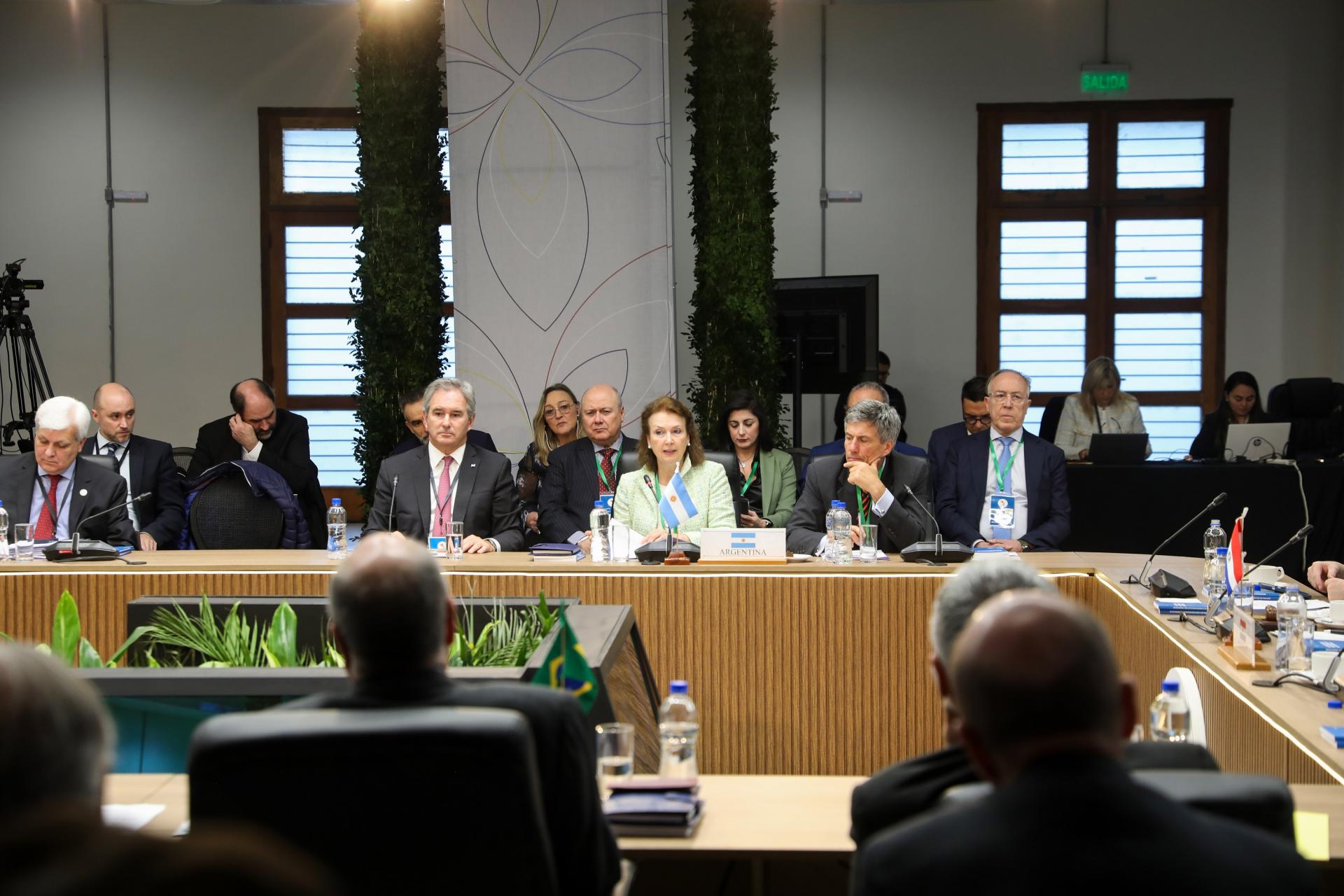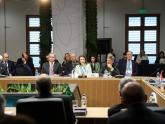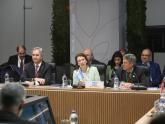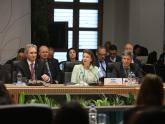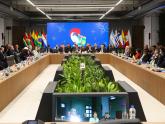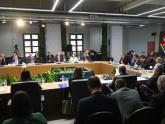Foreign Minister Mondino, together with her counterparts from the region, participated today in the plenary sessions of the Council of the Common Market of MERCOSUR (CMC) in Asunción, Paraguay, including the meeting of Member States and, later, the meeting with Associate States.
The sessions took place at the Historical Building of the Port of Asunción and were presided over by Paraguay's Foreign Minister, Rubén Ramírez Lezcano, who presented the bloc's progress and challenges during Paraguay's Pro Tempore Presidency over the past six months. Ministers of Economy and Finance, National Coordinators, authorities from various multilateral organizations, technical delegations and special guests also participated in the sessions.
During her speech at the 64th Meeting of the CMC, Mondino said that "under President Milei's administration, Argentina is promoting a new foreign economic policy, strategically focused on freedom.” Regarding MERCOSUR, she reaffirmed Argentina's bloc membership and acknowledged the achievements in the integration process, including that "MERCOSUR became the top destination for Argentina's exports" and that "it is the first step in the internationalization process of Argentine companies, especially SMEs."
In addition, the Foreign Minister highlighted the recent progress made regarding a number of issues that are key to strengthening regional integration and the competitiveness of the Member States’ economies. Regarding energy matters, she recalled that "we have engaged in discussions with the Member States to supply their industries and homes with gas from 'Vaca Muerta.' In MERCOSUR we have successful experience in electricity trade and building of common infrastructure, so we expect to be able to trade gas successfully as well.”
However, she stated that “we are critical of the current situation of MERCOSUR, since we believe that it has untapped potential as an expanded market and as a platform for international integration. What MERCOSUR needs is a shock of adrenaline.”
“From a commercial perspective, it is undeniable that trade within the bloc has stagnated,” she said, and explained that, in 1998, 25% of exports from the four Member States were destined to MERCOSUR, while the figure only reached an average 12.5% during the past ten years (2013-2023). In fact, trade within MERCOSUR fell to 11.3% in 2023.
Furthermore, the Foreign Minister stated that “the bloc's agenda only moves forward by inertia and cannot keep up with a fast-changing world. The current stage of MERCOSUR is characterized by the ‘management’ and ‘administration’ of previous agreements and commitments, but we lack the agility and capacity to propel the countries to the topics of the future. Suffice it to say that artificial intelligence (AI), a significant and disruptive topic on the global agenda, is neither addressed at any of our fora, nor is it part of our discussions.”
The Foreign Minister then analyzed the bloc’s foreign relations and said that “so far, it is unarguable that MERCOSUR has failed in facilitating access to big markets outside the bloc” and stressed that the bloc has no trade agreements with any of the countries or blocs that currently streamline—or will streamline in the near future—international economy. “In addition, we have a high ‘common external tariff’, as compared to international standards, and due to its dispersion and exceptions, it only hinders the operations of our companies,” she stated, and then announced that, as anticipated within the Common Market Group, “next semester, Argentina will set out general guidelines for a comprehensive review of the tariff.”
She concluded the analysis by saying that “MERCOSUR has the right capacities and resources to meet the current and future needs of the most demanding markets: strategic natural resources, excellent human talent, high-quality food supply, valuable energy resources for energy transition, and an innovating industry, among others. We need to realize this potential.”
Then, the Foreign Minister highlighted that the Argentine Government has implemented numerous measures to standardize our foreign trade and promote free import of goods and services from MERCOSUR countries. “This is work in process, and it is lengthy and expensive. I have discussed it bilaterally with all of you, and our technical groups have presented their reports on the process to MERCOSUR.” This “deregulating” process, she said, will be strengthened by the recently passed “Law on Bases and Starting Points for the Freedom of Argentines,” which includes “a number of provisions that will have a positive impact on international trade with our partners.”
The Foreign Minister reiterated the intention to “promote, from within this CMC, since it is our responsibility as political leaders of the integration process, just as we did from the Common Market Group, an institutional ‘modernization’ of MERCOSUR that facilitates its decision-making processes, while respecting its intergovernmental nature. This will enable the bloc to adapt to the challenges posed by the global scenario.”
Mondino also proposed working on a new dimension of this “modernization”, related to the bloc's external agenda, which involves the continued application of new, more flexible forms of negotiations with other countries from the region or the rest of the world, with a view to reaching a new agreement on the occasion of the 30th anniversary of the Protocol of Ouro Preto next December.
Mondino reaffirmed that Argentina undoubtedly believes that the Member States have given absolute priority to the bloc’s external agenda, where, in addition to the ongoing negotiations with the EU and EFTA, we need to make progress on negotiations with other Latin American countries, such as El Salvador, Dominican Republic, Honduras, Panama, Guatemala and Ecuador, as well as with countries and associations from other regions.
Regarding other regions, she mentioned Indonesia's proposal to sign a free trade agreement, which is also a possibility with Vietnam, given that both countries together represent a market of 375 million people and account for a GDP of USD 1.7 million. She also mentioned African and Gulf countries. “We have just launched negotiations with the United Arab Emirates and want to negotiate with the rest of the countries in that region,” she said.
She concluded by saying that “Argentina renews its commitment to MERCOSUR. Let us move forward with more MERCOSUR, but with a MERCOSUR that is more integrated into a fast-moving world that does not wait for us.”

